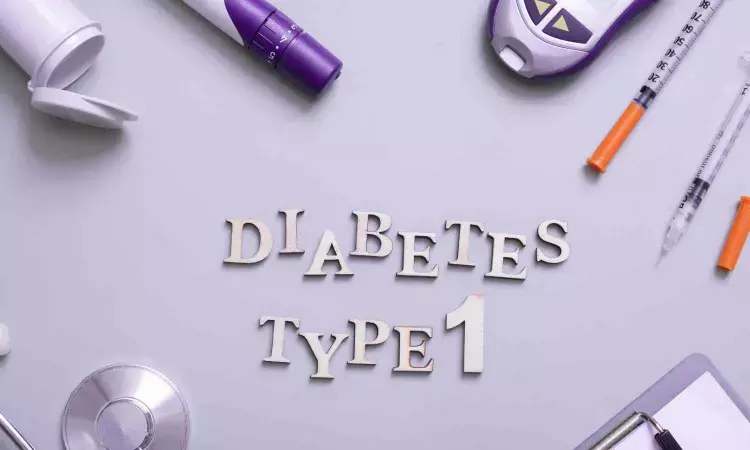- Home
- Medical news & Guidelines
- Anesthesiology
- Cardiology and CTVS
- Critical Care
- Dentistry
- Dermatology
- Diabetes and Endocrinology
- ENT
- Gastroenterology
- Medicine
- Nephrology
- Neurology
- Obstretics-Gynaecology
- Oncology
- Ophthalmology
- Orthopaedics
- Pediatrics-Neonatology
- Psychiatry
- Pulmonology
- Radiology
- Surgery
- Urology
- Laboratory Medicine
- Diet
- Nursing
- Paramedical
- Physiotherapy
- Health news
- Fact Check
- Bone Health Fact Check
- Brain Health Fact Check
- Cancer Related Fact Check
- Child Care Fact Check
- Dental and oral health fact check
- Diabetes and metabolic health fact check
- Diet and Nutrition Fact Check
- Eye and ENT Care Fact Check
- Fitness fact check
- Gut health fact check
- Heart health fact check
- Kidney health fact check
- Medical education fact check
- Men's health fact check
- Respiratory fact check
- Skin and hair care fact check
- Vaccine and Immunization fact check
- Women's health fact check
- AYUSH
- State News
- Andaman and Nicobar Islands
- Andhra Pradesh
- Arunachal Pradesh
- Assam
- Bihar
- Chandigarh
- Chattisgarh
- Dadra and Nagar Haveli
- Daman and Diu
- Delhi
- Goa
- Gujarat
- Haryana
- Himachal Pradesh
- Jammu & Kashmir
- Jharkhand
- Karnataka
- Kerala
- Ladakh
- Lakshadweep
- Madhya Pradesh
- Maharashtra
- Manipur
- Meghalaya
- Mizoram
- Nagaland
- Odisha
- Puducherry
- Punjab
- Rajasthan
- Sikkim
- Tamil Nadu
- Telangana
- Tripura
- Uttar Pradesh
- Uttrakhand
- West Bengal
- Medical Education
- Industry
Study Reveals Link Between Higher Urinary Calcium Excretion and Reduced Bone Growth in Youth with Type 1 Diabetes

Tamil Nadu Scales Up Type 1 Diabetes Treatment Facilities
USA: Recent research has unveiled a concerning connection between urinary calcium excretion and bone health in youth diagnosed with Type 1 Diabetes (T1D). The study, published in The Journal of Clinical Endocrinology & Metabolism, indicates that elevated levels of urinary calcium may hinder bone accrual, raising alarms about the long-term skeletal health of these young individuals.
"Youths with Type 1 Diabetes demonstrated lower bone mineral accrual than their peers without the condition. Additionally, higher urinary calcium excretion was associated with reduced bone accrual," the researchers wrote.
Type 1 Diabetes, an autoimmune condition primarily affecting insulin production, has been associated with various complications, including metabolic and skeletal issues. The negative impact of T1D on skeletal health encompasses insufficient bone accrual and a heightened risk of fractures throughout life. However, the factors that lead to impaired bone development in individuals with T1D remain partially unclear.
Against the above background, David R Weber, Department of Pediatrics, The Children's Hospital of Philadelphia and The Perelman School of Medicine at the University of Pennsylvania, Philadelphia, USA, and colleagues aimed to investigate whether urinary calcium excretion is linked to impaired bone accrual in youth with Type 1 Diabetes, and assess how glycemic control and markers of bone mineral metabolism contribute to urinary calcium levels.
For this purpose, the researchers conducted an observational study involving fifty participants aged 6 to 20 years with Type 1 Diabetes who completed a 12-month longitudinal examination of bone accrual. Additionally, a second cohort of 99 similarly aged individuals with T1D participated in cross-sectional 24-hour urine and blood collections. The primary outcome measures were the velocity Z-score of the whole body less head bone mineral content (WBLH BMC) and the fractional excretion of calcium (FeCa).
The following were the key findings of the study:
- The bone accrual cohort participants exhibited a lower WBLH BMC velocity than a healthy reference dataset, with a Z-score of −0.3 ± 1.0.
- There was a significant negative association between FeCa and the WBLH BMC velocity Z-score (ρ = −0.47).
- In the urinary calcium excretion cohort, intact PTH (β = −0.4), beta c-telopeptide (β = 0.35), and either hemoglobin A1c (β = 0.08) or urine fractional glucose excretion (β = 0.07) were associated with FeCa in multivariable regression models that accounted for known factors influencing urinary calcium excretion.
The findings showed that urinary calcium excretion was negatively correlated with bone accrual in the cohort of youths with type 1 diabetes.
"Further mechanistic studies are required to explore whether interventions aimed at reducing urinary calcium excretion could enhance bone accrual and decrease skeletal fragility in individuals with T1D," the researchers concluded.
Reference:
Weber, D. R., O, K., Ballester, L., Rackovsky, N., Graulich, B., & Schwartz, G. J. Greater Urinary Calcium Excretion Is Associated With Diminished Bone Accrual in Youth With Type 1 Diabetes. The Journal of Clinical Endocrinology & Metabolism. https://doi.org/10.1210/clinem/dgae660
Dr Kamal Kant Kohli-MBBS, DTCD- a chest specialist with more than 30 years of practice and a flair for writing clinical articles, Dr Kamal Kant Kohli joined Medical Dialogues as a Chief Editor of Medical News. Besides writing articles, as an editor, he proofreads and verifies all the medical content published on Medical Dialogues including those coming from journals, studies,medical conferences,guidelines etc. Email: drkohli@medicaldialogues.in. Contact no. 011-43720751


